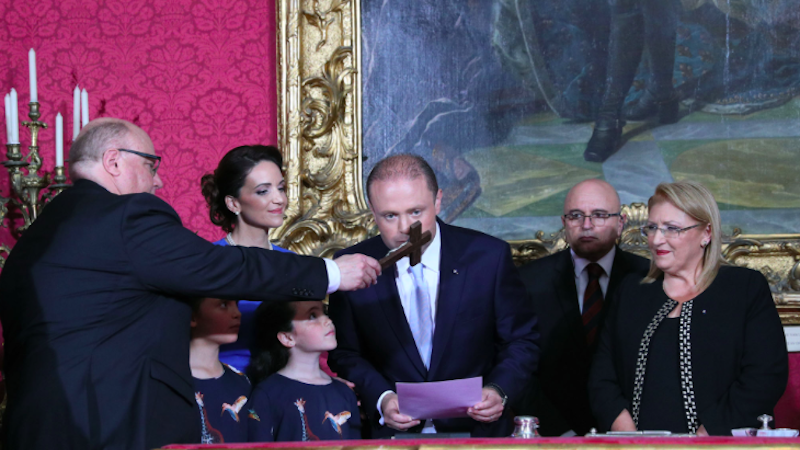The Attorney General Peter Grech on Wednesday accused the leader of the opposition of instituting a constitutional court case demanding the publication of the Egrant report “for media purposes”.
Rightly so, the leader of the opposition Adrian Delia retorted that such comments “ridiculed” the court case and diminished the importance of the opposition’s demands. I would add that Peter Grech is making a fool of himself and ridiculing the office he holds.
Following the conclusion of the report by magistrate Aaron Bugeja, Grech has insisted that he will not make the Egrant inquiry public over fears that doing so could hinder ongoing investigations and expose sensitive information about people who had no connection to the case.
However, he had no qualm in providing a copy of the report to Prime Minister Joseph Muscat who was the very subject of the inquiry conducted by Bugeja.
Its not that the report should not have been handed over to Muscat but the report should have been made accessible to all, including Muscat.
But it seems that Grech does not understand the notion of independence. The Maltese Constitution makes it very clear that the Attorney General “shall not be subject to the direction or control of any other person or authority” in carrying out his powers.
Article 91(1) of the Constitution provides that the Attorney General is appointed by the “President acting in accordance with the advice of the Prime Minister” however this does not mean that the holder of the office should do as told or accept political interference as some sort of job description.
Not only did Grech belittle the opposition’s demands in front of the constitutional court but he has so far failed to publish the correspondence that went on between himself and the Prime Minister.
The Egrant inquiry is no ordinary inquiry and the people have a right to know what the magistrate found and did not find. The public has a right to know how the inquiry unfolded and how the magistrate reached his conclusions. The public has a right to know whether the attorney General is acting upon the instructions of his political masters.
Only then can the public make up its mind whether any stones were left unturned and whether the protagonists of the story, from the Prime Minister’s chief of staff to Nexia BT and Pilatus Bank have anything to hide.
But Grech thinks differently and thanks to his decision to only grant access to the report to Muscat (and whoever he pleases to share the information with) the Egrant affair still casts a dark shadow over the country.
The easiest thing to do would be to call for Grech’s resignation but that would not solve much. When his time is up he’ll most definitely be replaced by somebody as accommodating as he is. To a certain extent the real problem lies less in who is appointed as Attorney General and more in how the office functions and how the holder of the office is held to account.
Ideally the Prime Minister and the executive do not appoint people in such crucial positions to further their short-term political interests but history has shown us that politicians do not give a hoot about the rule of law and the wellbeing of society and the environment. For Muscat and his ilk it’s only about “us” and “now”.
What needs to be worked out is how to guarantee independence to function free from major political interference. These questions have to be made and answered by a Constitutional reform.
But any such initiative should have the sole aim of making state institutions more transparent, more independent and accountable only to the Constitution.
However, I don’t have much faith in Muscat and yet another generation of politicians who only serve their own interests.
It’s almost a case of if its broken better not fix it because if Muscat or his successor embark on a Constitutional reform process with the aim of consolidating their power than I would rather leave things as they are.












